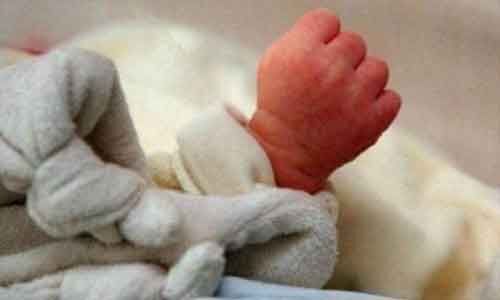- Home
- Medical news & Guidelines
- Anesthesiology
- Cardiology and CTVS
- Critical Care
- Dentistry
- Dermatology
- Diabetes and Endocrinology
- ENT
- Gastroenterology
- Medicine
- Nephrology
- Neurology
- Obstretics-Gynaecology
- Oncology
- Ophthalmology
- Orthopaedics
- Pediatrics-Neonatology
- Psychiatry
- Pulmonology
- Radiology
- Surgery
- Urology
- Laboratory Medicine
- Diet
- Nursing
- Paramedical
- Physiotherapy
- Health news
- Fact Check
- Bone Health Fact Check
- Brain Health Fact Check
- Cancer Related Fact Check
- Child Care Fact Check
- Dental and oral health fact check
- Diabetes and metabolic health fact check
- Diet and Nutrition Fact Check
- Eye and ENT Care Fact Check
- Fitness fact check
- Gut health fact check
- Heart health fact check
- Kidney health fact check
- Medical education fact check
- Men's health fact check
- Respiratory fact check
- Skin and hair care fact check
- Vaccine and Immunization fact check
- Women's health fact check
- AYUSH
- State News
- Andaman and Nicobar Islands
- Andhra Pradesh
- Arunachal Pradesh
- Assam
- Bihar
- Chandigarh
- Chattisgarh
- Dadra and Nagar Haveli
- Daman and Diu
- Delhi
- Goa
- Gujarat
- Haryana
- Himachal Pradesh
- Jammu & Kashmir
- Jharkhand
- Karnataka
- Kerala
- Ladakh
- Lakshadweep
- Madhya Pradesh
- Maharashtra
- Manipur
- Meghalaya
- Mizoram
- Nagaland
- Odisha
- Puducherry
- Punjab
- Rajasthan
- Sikkim
- Tamil Nadu
- Telangana
- Tripura
- Uttar Pradesh
- Uttrakhand
- West Bengal
- Medical Education
- Industry
New test better predicts which babies will develop type 1 diabetes later

Research at the University of Exeter and the Pacific Northwest Research Institute in Seattle have developed a new approach to predicting which babies will develop type 1 diabetes later. The combined risk score approach moves a step closer to routine testing for newborns which could avoid life-threatening complications.
Scientists at seven international sites have followed 7,798 children at high risk of developing type 1 diabetes from birth, over nine years, in The Environmental Determinants of Diabetes in the Young (TEDDY) Study. The TEDDY Study is a large international study funded primarily by the US National Institutes of Health and U.S. Centers for Disease Control, as well as by the charity JDRF.
In research published in Nature Medicine, scientists used the TEDDY data to develop a method of combining multiple factors that could influence whether a child is likely to develop type 1 diabetes. The combined risk score approach incorporates genetics, clinical factors such as family history of diabetes, and their count of islet autoantibodies - biomarkers known to be implicated in type 1 diabetes.
The research team found that the new combined approach dramatically improved prediction of which children would develop type 1 diabetes, potentially allowing better diabetes risk counselling of families. Most importantly, the new approach doubled the efficiency of programmes to screen newborns to prevent the potentially deadly condition of ketoacidosis, a consequence of type 1 diabetes in which insulin deficiency causes the blood to become too acidic. Identifying which children are at highest risk will also benefit clinical trials on drugs that are showing promise in preventing the condition.
Dr Lauric Ferrat at the University of Exeter Medical School, said: "At the moment, 40 per cent of children who are diagnosed with type 1 diabetes have the severe complication of ketoacidosis. For the very young this is life-threatening, resulting in long intensive hospitalizations and in some cases even paralysis or death. Using our new combined approach to identify which babies will develop diabetes can prevent these tragedies, and ensure children are on the right treatment pathway earlier in life, meaning better health."
Professor William Hagopian of the Pacific Northwest Research Institute, said: "We're really excited by these findings. They suggest that the routine heel prick testing of babies done at birth, could go a long way towards preventing early sickness as well as predicting which children will get type 1 diabetes years later. We're now putting this to the test in a trial in Washington State. We hope it will ultimately be used internationally to identify the condition as early as possible, and to power efforts to prevent the disease."
Researchers believe the combined approach can also be rolled out to predict the onset of other diseases with a strong genetic component that are identifiable in childhood, such as celiac disease.
Sanjoy Dutta, JDRF Vice President of Research, said:" We know that while genetics have a strong correlation as a risk factor for family members to develop T1D, most newly diagnosed individuals do not have a known family history. JDRF has been exploring the non-genetic, environmental risk factors that trigger T1D to help develop treatments to forestall or prevent disease onset."
Hina Zahid Joined Medical Dialogue in 2017 with a passion to work as a Reporter. She coordinates with various national and international journals and association and covers all the stories related to Medical guidelines, Medical Journals, rare medical surgeries as well as all the updates in the medical field. Email: editorial@medicaldialogues.in. Contact no. 011-43720751
Dr Kamal Kant Kohli-MBBS, DTCD- a chest specialist with more than 30 years of practice and a flair for writing clinical articles, Dr Kamal Kant Kohli joined Medical Dialogues as a Chief Editor of Medical News. Besides writing articles, as an editor, he proofreads and verifies all the medical content published on Medical Dialogues including those coming from journals, studies,medical conferences,guidelines etc. Email: drkohli@medicaldialogues.in. Contact no. 011-43720751


